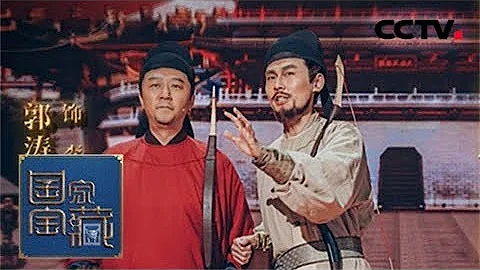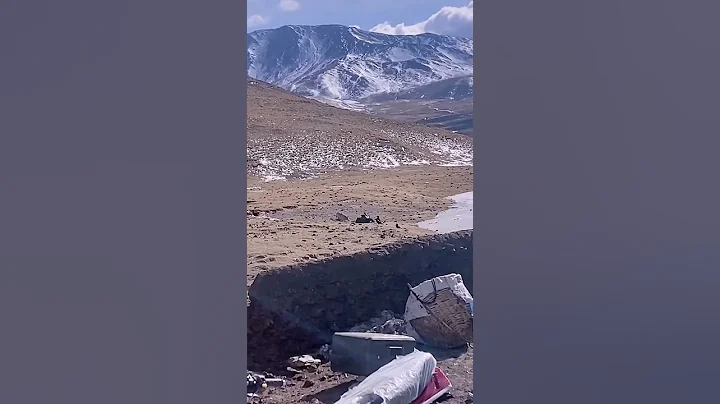Foreword
In June 1994, Shi Ruichu died in Beijing due to illness at the age of 70. You may not know much about the person "Shi Ruichu". But what's special about her is that she was once the lover of the anti-Japanese warrior Commander Chen Guang.
More than 30 years after her husband died, a piece of news changed the trajectory of the rest of Shi Ruichu's life.
On the occasion of commemorating the 50th anniversary of the Long March , more than 10 old comrades who knew Chen Guang well, including Marshal Luo Ronghuan's wife Lin Yueqin, jointly wrote a letter to central leader Chen Yun, hoping to re-address Chen Guang's issue.
After reading the letter, Chen Yun immediately mobilized the "Central Commission for Discipline Inspection", " Central Organization Department ", "Military Commission for Discipline Inspection" and "General Administration" to set up a joint investigation team. After careful and careful review, the results finally came out. That's Chen Guang's problem, a mistake in history.
In April 1988, Chen Guang restored his party membership and reputation and returned to the embrace of the party. In the same year, the General Political Department of ordered that Chen Guang be included in the "Directory of Generals of the Chinese People's Liberation Army" and ordered it to be compiled with the specifications of a general. At the same time, the radio station in Yizhang County, Hunan Province, Chen Guang's hometown, continuously played a long article praising Chen Guang, "The Warrior Sweeps the Journey with Magnificence". Soon, everyone in his hometown knew that this county had produced such a hero.

Picture | Chen Guang
The old comrades who wrote to Chen Yun this time were very happy about the result. In particular, Shi Ruichu looked even more excited. However, apart from the joy, Shi Ruichu thought of another major event: After the death of her husband Chen Guang, his ashes have been missing. Shi Ruichu, 64 years old at the time, decided to join hands with his son and travel across the country to search for clues.
In Wuhan, the mother and son met an informed revolutionary old man. According to the old man, after Commander Chen Guang died, his body was cremated and then buried in Daijiashan Cemetery in Wuhan. Unfortunately, there were frequent floods in Wuhan at that time, and at some point, Comrade Chen Guang’s tomb was washed away.
Hearing this sad news, Shi Ruichu felt sad in his heart. But she did not give up and continued to search. In the next six years, she asked her son to collect more of his father Chen Guang's relics while searching for his father.

Picture | A photo of Shi Ruichu and Chen Guang
On his deathbed in 1994, Shi Ruichu left his last words: "Bury my ashes at the foot of Fenghuang Mountain to show that I have devoted myself to the revolution throughout my life and will accompany Chen Guang in life and death."
Then, Chen Guang was from Hunan, so why was Shi Ruichu buried at the foot of Fenghuang Mountain in Shandong? It all starts from that war-torn era...
Chen Guang's legendary experience in his early years
Chen Guang was born in 1905 in a poor peasant family in Yizhang, Hunan. In 1926, the Northern Expeditionary Army entered Hunan and established a Farmers' Association in Yizhang, Hunan. Chen Guang became a member of the Farmers' Association. The following year, Chen Guang joined the Communist Party of China after being introduced by underground party members.
At the beginning of 1928, Zhu De and Chen Yi led the remnants of the "August 1st" Nanchang Uprising to station in Yizhang. After Chen Guang heard the news, he immediately donated the 12 rifles he had collected and then led the Peasant Red Guards to join the Red Army in Yizhang. riot. After the success of the
uprising, Chen Guang officially embarked on the revolutionary journey. He followed Zhu De and Chen Yi to Jinggangshan , and was incorporated into the First Battalion of the 29th Regiment of the Third Independent Division of the Chinese Workers' and Peasants' Red Army as company commander.
In February 1930, Chiang Kai-shek launched the first "encirclement and suppression" campaign against the Central Soviet Area. At this time, Chen Guang was already the deputy detachment leader of a detachment under Lin Biao's leadership of the first column of the Fourth Red Army. In the battle against "encirclement and suppression", Lin Biao was surrounded by the enemy because his command post was improperly set up. At the critical moment, Chen Guang led his troops to the front line and rescued Lin Biao safely.

Picture | Lin Biao
During the fierce battle, Chen Guang's body was stained. Afterwards, Lin Biao went to the rescue center to visit him in person. Lin Biao, who was not good at talking, thanked him and asked the central government for credit for him.
html In October, the Red Army was reorganized. Lin Biao was appointed commander, Luo Ronghuan was appointed political commissar, and Chen Guang was promoted to commander of the 30th Regiment of the 10th Division.From May to September 1931, Chiang Kai-shek launched the second and third "encirclement and suppression" campaigns. During the battle, Chen Guang was promoted to chief of staff of the 10th Division. At the end of the year, Chen Guang was transferred to the position of commander of the 12th Division of the Fourth Red Army.
In August 1933, Chiang Kai-shek mobilized one million troops and launched the fifth "encirclement and suppression" campaign using bunker tactics. In order to expand its popularity, the Party Central Committee established the "China Young Communist Party International Division". The average age of this team is only 18 years old. 28-year-old Chen Guang serves as the division commander, and 17-year-old Xiao Hua serves as the political commissar.
After the division was established, under the leadership of Chen Guang and Xiao Hua, more than 500 enemies were killed in the first battle and a large number of weapons and ammunition were seized. In response, Zhu De sent a message to commend the division, calling it "the first trial of the Iron Fist". Three months later, Chen Guang was promoted to commander of the Second Red Division.
In October 1934, Chen Guang led the Second Red Division on the Long March. Along the way, the duty of the Second Red Division was to break out into the vanguard. After the Liping Conference, the Red Army moved to Zunyi. The fourth regiment of the division was selected as the vanguard. The division commander Chen Guang was named by the head of the Military Commission and personally led the attack. The fourth regiment rushed to cross the natural danger of Wujiang River. At that time, the leader of the Fourth Regiment was Geng Biao and the political commissar was Yang Chengwu.

Picture | Chen Guang
After that, Chen Guang returned to the division headquarters and commanded the Sixth Regiment and the Fourth Regiment to capture Zunyi respectively, seize Loushanguan , occupy Songba, and then assemble the troops to guard the Zunyi Conference . At the Zunyi Conference, Mao Zedong established his leadership.
Then, Chen Guang led his troops to participate in the crossing of Chishui and successfully marched into western Sichuan. At this time, at the Ansunchang Ferry of the Dadu River, the Central Red Army was chased by hundreds of thousands of enemy troops. It was the rainy season, and the water flow at Anshunchang Ferry was so fast that it was impossible to set up a pontoon. In addition, four small boats were confiscated. Now only by seizing the Luding Bridge, can the troops rush to cross the Dadu River.
At the critical moment, Chen Guang led the Fourth Regiment of the Second Red Division from western Sichuan to Anshunchang Ferry at a speed of 120 kilometers in one day, and created a miracle in military history - capturing the Luding Bridge in flight.

The Red Army went north. After walking out of the grassland, the Second Red Division took the lead in entering Gannan. At this time, the natural danger - Lazikou blocked the way of the troops. After Lin Biao looked at the terrain, he ordered Chen Guang and Yang Chengwu, political commissar of the Fourth Regiment, to lead their troops to capture Lazikou. After a night of fierce fighting, our army won the battle.
On November 19, the Red Army entered northern Shaanxi. Chen Guang was appointed commander of the Fourth Red Division, and Peng Xuefeng was appointed political commissar.
In August 1937, the Red Army was reorganized into the Eighth Route Army of the National Revolutionary Army, with three divisions under its jurisdiction, namely the 115th Division, the 120th Division, and the 129th Division. Among them, the 115th Division is the most powerful, with a total of more than 15,000 people. When the
115 Division was established, the division commander was Lin Biao, the deputy division commander was Nie Rongzhen, and the director of the Political Training Department was Luo Ronghuan. It has two brigades under its jurisdiction, namely the 343rd Brigade and the 344th Brigade. Xu Haidong is the commander of the 344th Brigade, and Chen Guang is the commander of the 343rd Brigade.
html In September, Lin Biao concentrated all the troops of the 115th Division, set up an ambush at Pingxingguan, Shanxi, and annihilated more than 1,000 people from the 21st Brigade of the Banyuan Division, winning the first major victory since the National Anti-Japanese War. In October, Chen Guang and his old partner Xiao Hua led the 343rd Brigade to set up an ambush in Guangyang again, killing and wounding more than a thousand enemies.
In March 1938, Lin Biao was accidentally injured by the Jin army during a morning exercise on horseback. His life was in danger. He was immediately taken back to Yan'an and transferred to the Soviet Union for treatment.
As a result, the commander of the 115th Division became vacant. Upon the proposal of the Central Military Commission, the Eighth Route Army Headquarters appointed Chen Guang as the acting commander of the 115th Division.
Chen Guang led the 115th Division to participate in the " Lufang Battle"
In December 1938, the Eighth Route Army headquarters ordered the 115th Division to advance into Shandong. The designation is "Eighth Route Army Eastward Detachment".
115 Division entered Shandong and was invincible along the way. Soon, it attracted the attention of Lieutenant General Taka Kamezo , the highest commander of the Japanese army in Shandong and commander of the Twelfth Army Corps. Immediately, Kamezo sent a special agent team to inquire about the news and found that the "Eastward Detachment" was the 115th Division that participated in the Battle of Pingxingguan and annihilated the 21st Brigade of Itagaki Division.
Guizang was so angry that he gritted his teeth and roared, "I will wipe out this ace army of the Communist Party on the battlefield of Luxi !"
According to the plan, Guizang mobilized some troops from the garrison troops in 17 towns including Jinan and Tai'an on May 2, and concentrated more than 55,000 infantry and cavalry, more than 5100 artillery pieces, and more than 100 cars. While the 115th Division had not yet gained a firm foothold, it was defeated in one fell swoop.
When the Japanese army mobilized troops, Chen Guang received the intelligence that "the Japanese army encircled the 115th Division".On May 8, Chen Guang held an emergency meeting, attended by Wang Bingzhang, Director of the Operations Department, and others. At the meeting, Chen Guang asked everyone to express their opinions and discuss the troops' breakout route.
Wang Bingzhang said: "If you break through between Dongping and Wenshang in the southwest, the resistance will be smaller."

Picture | Lieutenant General Wang Bingzhang
Chen Guang pointed to the map here and said: "There are no mountains in this area. , the Japanese army's cars and cavalry rushed over, they were too fast to stop, and they were afraid that it would not be conducive to guerrilla warfare."
Wang Bingzhang said: "I think the enemy will also think so. The enemy thinks that it is impossible for us to break through to the plains, and the defense there must be weak. ."
Chen Guang nodded and said, "This hypothesis is also possible." Then, Chen Guang ordered his troops to be divided into two groups, one to break through "Dongping and Wenshang", and the other to "Dafeng Mountain". After breaking through, meet at salt-free village .
htmlTwenty-two days later, Chen Guang led the main force to Dafeng Mountain. On the way, the leading troops encountered a Japanese attack. Seeing this, Chen Guang ordered his troops to retreat to Lufang. Lufang is surrounded by mountains, making it easy to defend but difficult to attack, and the terrain is very favorable.Currently, more than 3,000 people under Chen Guang are surrounded by the Japanese army in a small area of 10 kilometers around Lufang Village.
In other words, the commanding height of Lufang is Fat Pig Mountain, and the throat of Lufang is Xishan. Therefore, these two places have become battlegrounds between ourselves and the enemy. After a fierce battle, our army used the tactics of annihilating the enemy in close combat to repulse 9 enemy charges and hold on to the position.
After nightfall, the Japanese army was afraid of night battles, so they stopped attacking and waited until dawn before starting the "encirclement and suppression" campaign.
Chen Guang made a decisive decision and planned to wait for an opportunity to break out. In order not to be discovered by the enemy, Chen Guang requested that there be no light or noise.

According to the veteran's recollection:
"It is not easy to make no noise. It is okay not to speak. It is difficult not to sneeze or cough. But we must overcome it. If I can't help sneezing, I rub my nose; I am afraid of the sound of the horse's hooves. Tear off the sleeves, make 'socks' and put them on the four hooves of the horse; if you are afraid of the horse's braying, tie a brick on the horse's tail and hang the horse's tail to stop the horse from braying."
After the preparations for the breakout were ready, the troops were in the red Under the leadership of the guide invited by the mountain village, we followed the path along the Aphid Mountain and passed the enemy blockade. After the successful breakout, the guide encountered the enemy on his way back and was unfortunately killed. His name has not yet been found out.
html In the early morning of the 212th, the enemy did not know that our army had broken out of the encirclement, and ordered to concentrate firepower on the hills surrounding the landing house. But after beating for a while, there was no reaction. When the Japanese troops rushed up, they were shocked by the deserted scene.At this time, Chen Guang led the main force and met with another group of troops in Wuyan Village.

Picture | Chen Guang
In the "Battle of Lufang", our army sacrificed 360 people, wiped out more than 1,200 enemies, and killed more than 50 officers including the captain of the Japanese Army's Colonel Regiment.
During the "Lu Fang Breakout", Chen Guang and Shi Ruichu had only been married for more than a year.
After the Lu Fang battle, when cleaning the battlefield, the Japanese army's shameless operations made Chen Guang and Shi Ruichu feel extremely resentful.
Generally speaking, when two armies fight, the winner cleans the battlefield first. In the Battle of Rikufang, although the enemy suffered heavy casualties, our army broke through, so the Japanese army cleaned the battlefield first.
The Japanese army has a habit of not letting us see the bodies of their dead as long as they can. If there were few casualties, then they would take the bodies back and have them cremated. But in the "Battle of Lufang", the Japanese army killed more than 1,200 people. Even if the car was filled with corpses, it would not be able to contain them.
Therefore, Kamezo thought of a way to cut off the heads of the dead Japanese soldiers and put them in a car and take them away. The bodies were poured with gasoline and cremated on the spot.
In this battle, a lot of Japanese soldiers died. Kamezo looked worried, wondering how to communicate with Tokyo? Finally, he racked his brains and came up with a vicious method: go to the villages to capture some people, let them wear Eighth Route Army uniforms and take pictures, and then kill them.
After the enemy has cleaned up the battlefield, it’s time for the Eighth Route Army to clean up. Zhang Renchu, leader of the 686th Regiment, led a company back to Lufang and organized the masses to bury the bodies of the fallen comrades and fellow villagers.After sorting out the remains and clothing of the martyrs, everyone buried the sacrificed people at the foot of Phoenix Mountain.
This battle can be regarded as a famous example in the history of Shandong war of killing a large number of enemies and preserving one's own strength.
Shi Ruichu and Chen Guang had only been married for more than a year when "Lu Fang broke out". Shi Ruichu was a doctor accompanying the army and was surrounded in the land house with the troops. If the breakout failed, she would definitely become a member of the Martyrs Cemetery at the foot of Fenghuang Mountain.

After that, Shi Ruichu and Chen Guang participated in large and small battles, with tens of thousands of people participating in large battles. Although there were countless battles, Shi Ruichu was particularly impressed by the "Battle of Lufang". This also paved the way for her to be buried under Fenghuang Mountain, the hometown of the "Battle of Lufang".
After Shi Ruichu passed away in 1994, his son followed his mother's last wish and buried her at the foot of Phoenix Mountain.
18 years later, after consulting a large amount of historical materials, Shi Ruichu and Chen Guang's youngest son took a small stone and wrote the name "Chen Guang" on every place where Chen Guang fought during the Long March. . In Chen Guang's hometown of Yizhang, Hunan, he took home a handful of soil. In the Wuhan Military Region where Chen Guang stayed, a piece of bark was pulled out. In the end, the younger son buried these things with his mother's body.

In this way, the current tombs of Chen Guang and Shi Ruichu exist.
General Chen Guang's record and character
After the "Battle of Lufang", Chen Guang led three to four hundred men and surrounded the Japanese Nagata Brigade and won a great victory. Soon, Chen Guang's reputation spread in Shandong. He and political commissar Luo Ronghuan cooperated so closely that when the 115th Division was mentioned, the soldiers and civilians in Shandong called him "Chen Luo".
In the following years, Chen Guang and Luo Ronghuan worked together in the Shandong Anti-Japanese Base, smashing many "mopping up" campaigns by the Japanese army, and winning famous battles such as Jiazishan, Liangshan, and Yancheng.

In 1945, Chen Guang attended the "Seventh National Congress" of the Party held in Yan'an. After the meeting, Chairman Mao specially invited Chen Guang and Shi Ruichu to visit his home together. During this period, Chairman Mao had a cordial conversation with the couple. Chairman Mao spoke highly of Chen Guang's contribution since joining the revolution and gave many instructions and entrustments for his future work.
In July 1950, when Chen Guang was serving as deputy commander of the Guangzhou Military Region and commander of the Guangzhou City Security, he was expelled from the party due to internal conflicts. Died in 1954 at the age of 44.
One year after Chen Guang passed away, the People's Liberation Army held a medal ceremony at Huairen Hall in Zhongnanhai. Chen Guang's old leaders, old partners, and old comrades-in-arms Lin Biao, Luo Ronghuan, Nie Rongzhen, Xu Haidong, and Yang Dezhi were awarded the titles of marshal, general, and general respectively.
According to this comparison, Chen Guang's military rank should be general. After all, when the General Political Department later included him in the "Directory of Generals of the People's Liberation Army," he was listed as a general.
General Chen Guang holds a special status in our army. Military history calls him "always loyal, possessing the excellent qualities of humbly learning for the party and class, and connecting with the masses." He and his wife Shi Ruichu, as well as the predecessors who made great contributions in the revolutionary era, deserve to be remembered forever by our descendants!




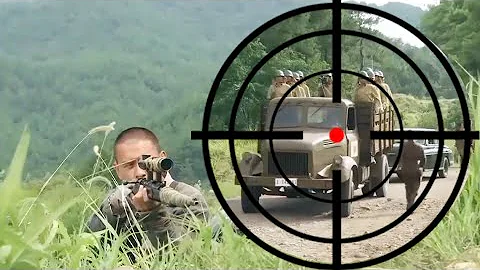

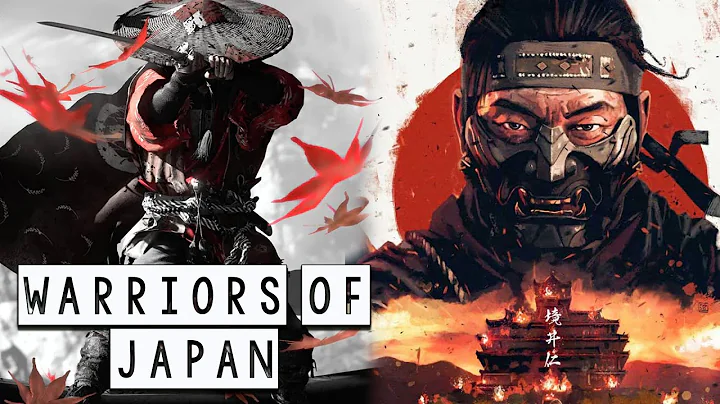
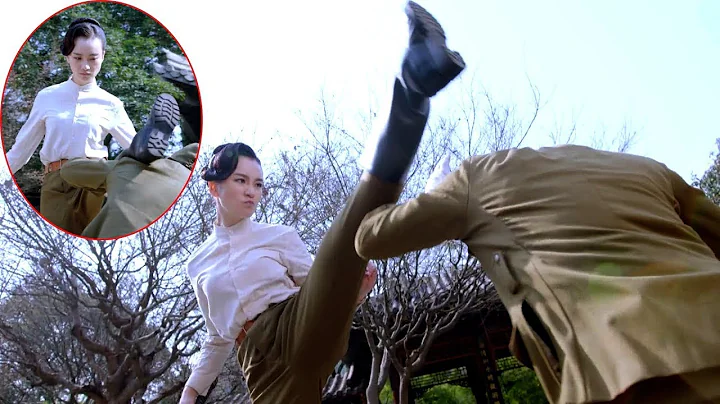
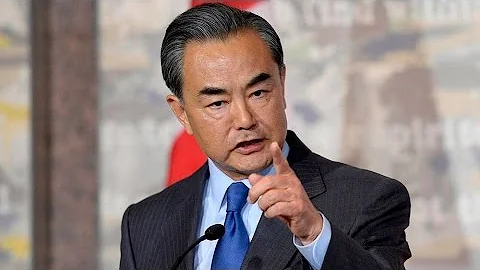



![[ENG SUB] A History of China: 唐代宗教 Religion in the Tang Dynasty 兼容并蓄:唐代的宗教思想 | EP51 | 中国通史 - DayDayNews](https://i.ytimg.com/vi/dVSHOv86XiI/hq720.jpg?sqp=-oaymwEcCNAFEJQDSFXyq4qpAw4IARUAAIhCGAFwAcABBg==&rs=AOn4CLABLVidfgh83c7d28MwDVoDdq4cMA)
